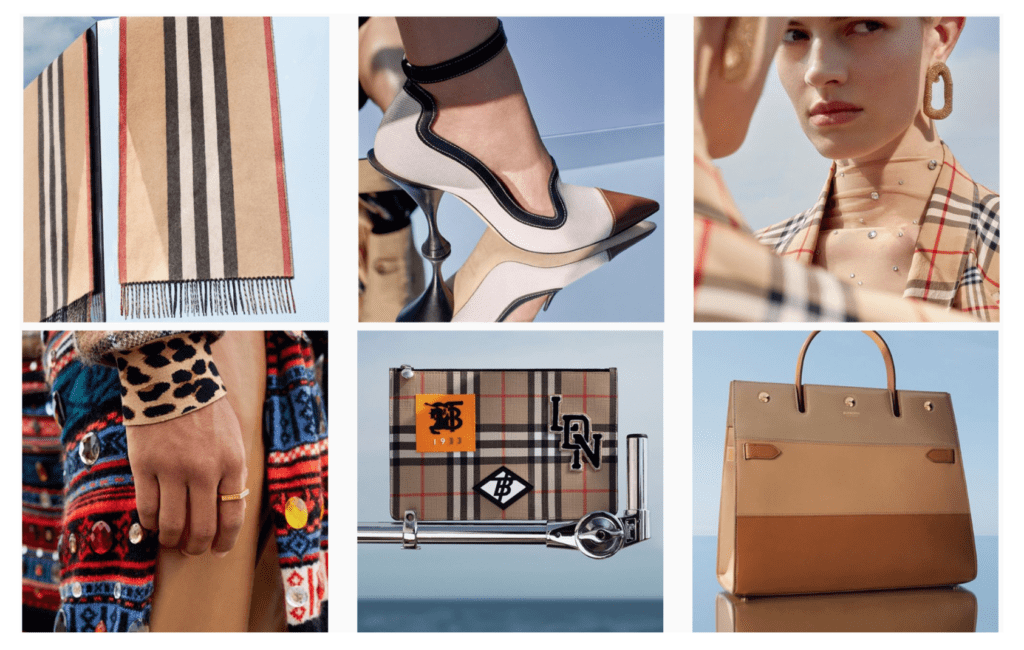Customers who consign Burberry pieces to The RealReal are now being offered “an exclusive personal shopping experience in select Burberry stores across the U.S.” in furtherance of an effort between the two companies to “encourage customers to extend the life of their products through resale.” San Francisco-based The RealReal says that its new tie-up with Burberry comes as resale demand for the stalwart British fashion brand has increased by 64 percent over last year, with searches for Burberry goods rising fastest among The RealReal’s millennial and Gen-Z customers.
“Leading the way in creating a more circular economy for fashion is a key element of our Responsibility agenda,” Pam Batty, VP of Corporate Responsibility at Burberry, said in a statement on Monday. “We know that the enduring quality of Burberry pieces means their appeal and value is long-lasting.” The RealReal CEO Julie Wainwright says that the partnership is a sign of the growing importance of the resale economy: “A brand as storied as Burberry embracing the circular economy demonstrates the power of resale’s impact on both the luxury market and the planet.”
The new union between Burberry and The RealReal – currently in a pilot stage – comes on the heels of an ongoing venture between the popular resale platform, which made its stock market debut in June, with Stella McCartney in connection with which individuals who consign Stella McCartney products with The RealReal receive $100 store credit to shop at McCartney’s retail stores or the brand’s e-commerce site.
As of December, 14 months after the TRR x Stella partnership got its start in October 2017, the number of The RealReal consignors of Stella McCartney items increased by 65 percent and the number of Stella McCartney items consigned increasing by 74 percent, according to data from the resale site.
The RealReal’s growing list of partners certainly does not include at least one brand – Chanel – which has taken issue with the resale practice, filing suits against The RealReal and vintage consignment company What Goes Around Comes Around for allegedly piggybacking on the reputation and appeal of Chanel, what it aptly calls one of the most esteemed fashion houses in the world, for its own financial gain, and selling counterfeit products in the process.
Those lawsuits – which are currently underway in federal court in New York and which join a larger pattern by Chanel of taking on resellers over the years – shed light on the still-largely-unsettled relationship between resale companies and luxury brands, the latter of which are firmly accustomed to enjoying strict control over how and where their products are sold.
In furtherance of the luxury segment’s dedication to control, many of the market’s leaders have proven routinely slow to adapt to various advances in the market, whether it be the adoption of e-commerce to the willingness to meet consumers’ demand for previously-owned high fashion goods. To this day, Chanel, for instance, does not make its garments or handbags available to consumers by way of e-commcerce, while LVMH Moët Hennessy Louis Vuitton-owned Celine introduced its first e-commcerce venture last year. Such moves certainly stem from luxury’s longstanding unwillingness to cede close control their models of distribution as tied to their ever-exacting efforts to maintain their overall brand image in order to continue to lure luxury consumers even if the profile of some of those consumers is changing as millennials continue to grow in terms of spending power.
Nonetheless, the rise in demand for second-hand garments and accessories, which makes up a more than $25 billion market, paired with the growing desire of at least some brands to make inroads into the burgeoning economy – either by way of partnerships or in the form of acquisitions – marks a budding shift in the larger luxury resale environment.
With such growth in mind, analysts are simultaneously questioning the profitability prospects of The RealReal (despite boosting revenues for the 3 months ending June 30 by 51 percent to $71 million compared to the same time last year, the company has not yet achieved profitability), and urging investors to “watch for signs that brands are considering their own resale service,” as the Wall Street Journal’s Carol Ryan stated in June.
Doing so, Ryan wrote, “would give them greater control over prices in the secondary market and boost their sustainability credentials with millennial shoppers,” pointing to “Audemars Piguet, whose Swiss-made watches sell for over $50,000, recently said it plans to launch a secondhand business, and LVMH, the biggest luxury company in the world, [which] is launching its own blockchain platform that creates digital twins to authenticate pre-sold goods.”
Either way, and despite pushback over the strenuousness and efficacy of its authentication practices, luxury brands cannot simply ignore (or in Chanel’s case, attempt to sue away) The RealReal – and the resale market more generally –as they have done in the past, Forbes’ Pamela Danziger stated this summer, noting that the resale market is becoming a vital part of the greater luxury market infrastructure. The Burberry deal and The RealReal’s continued revenue growth seems to verify that.













